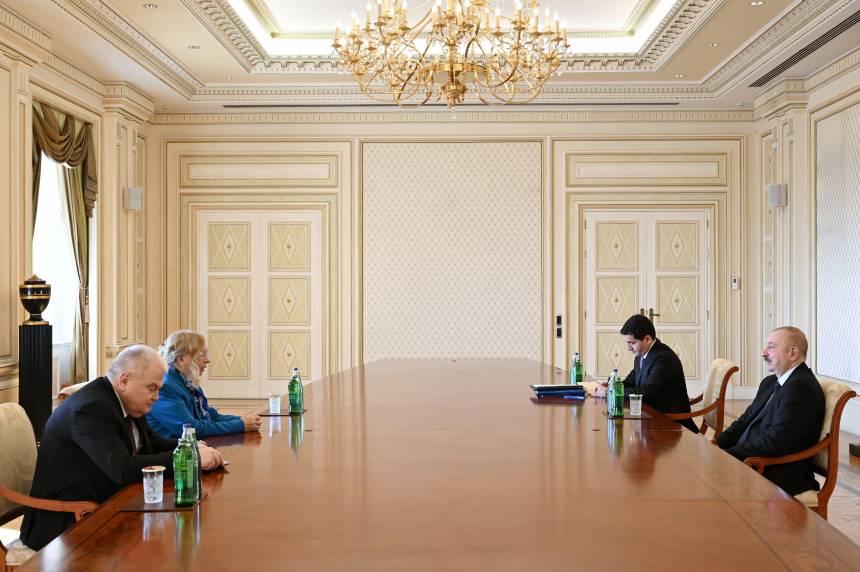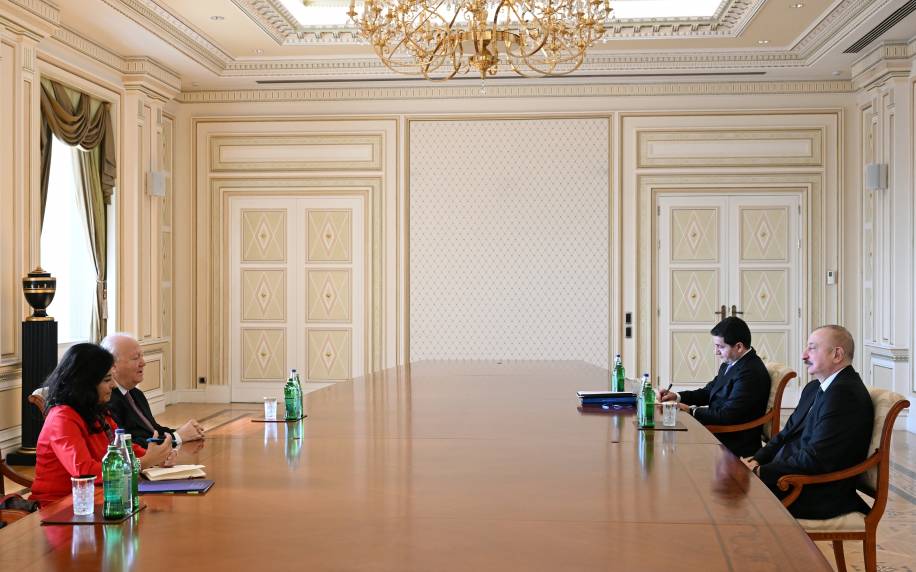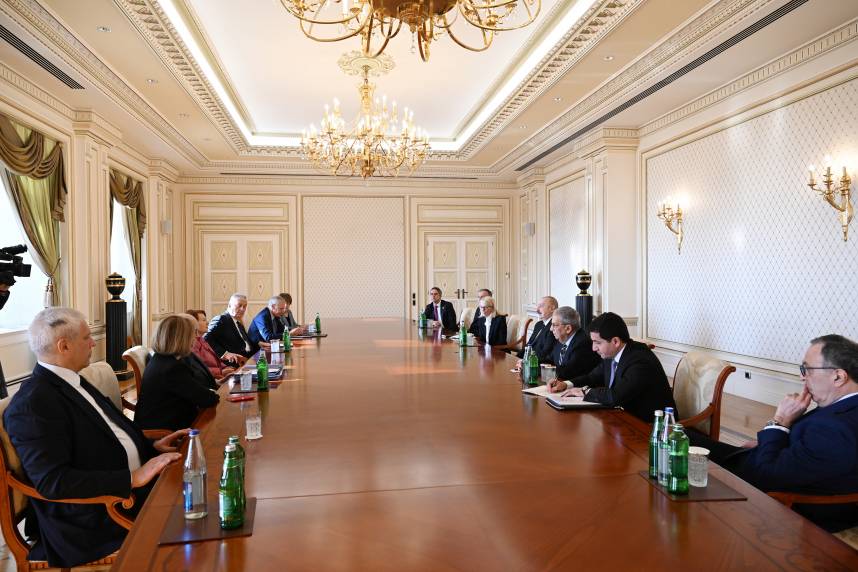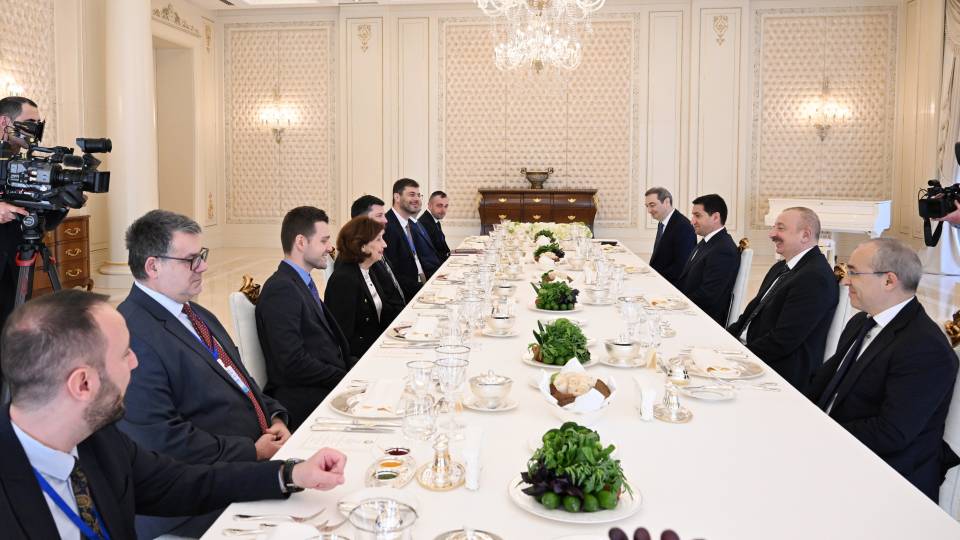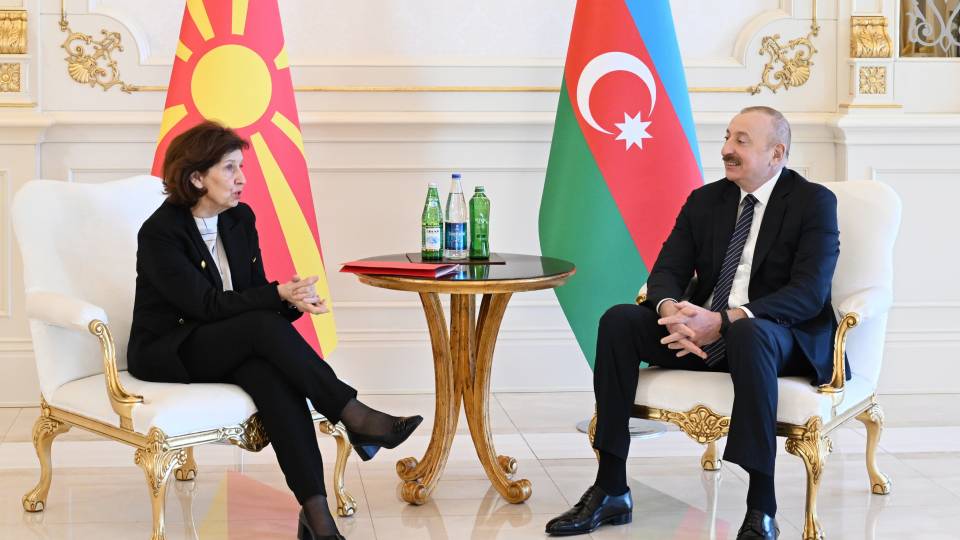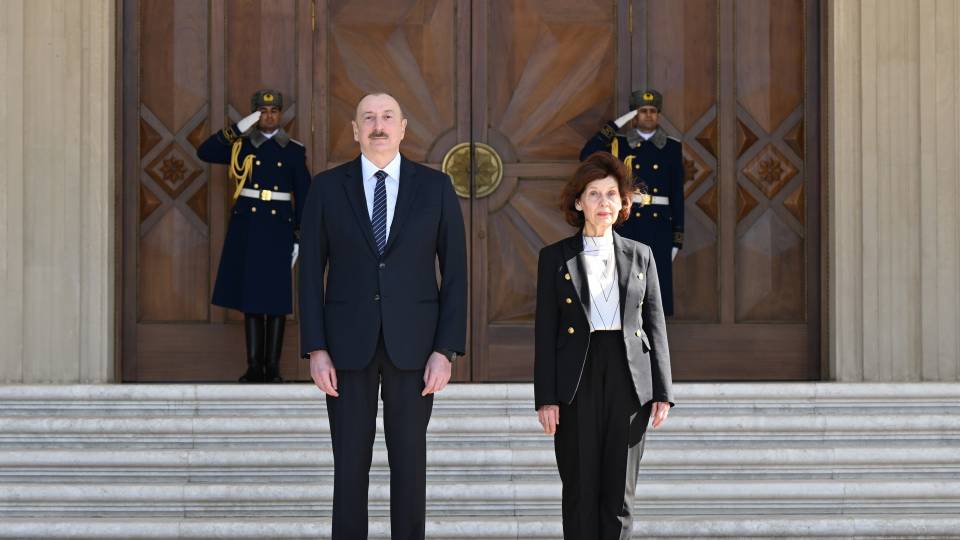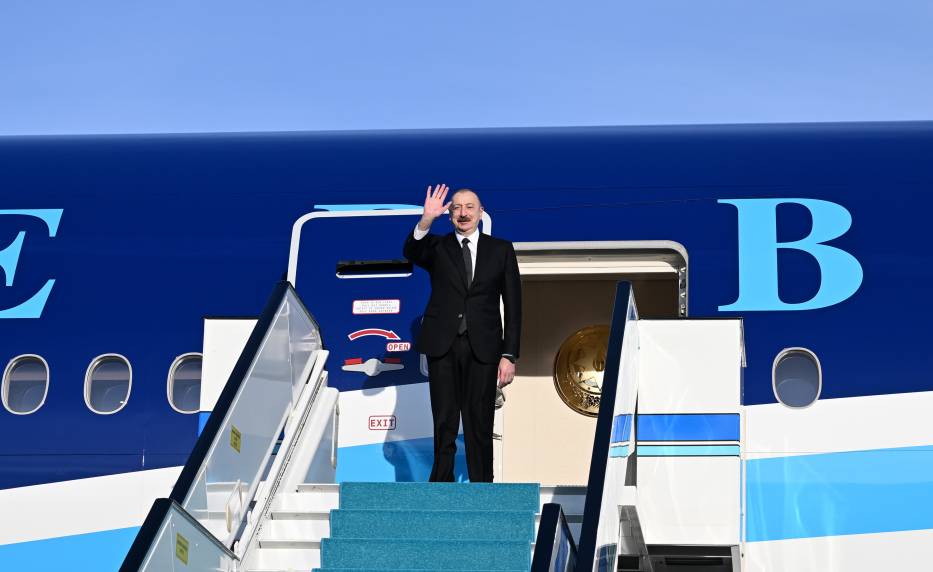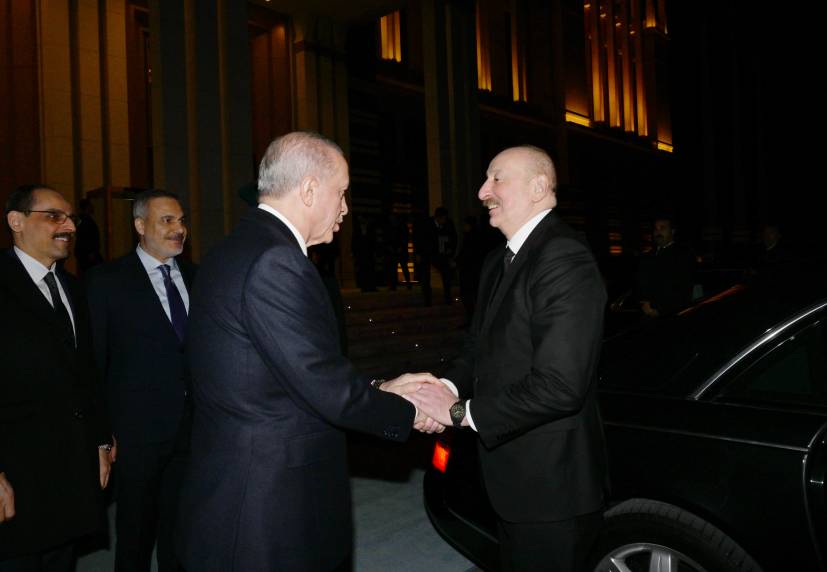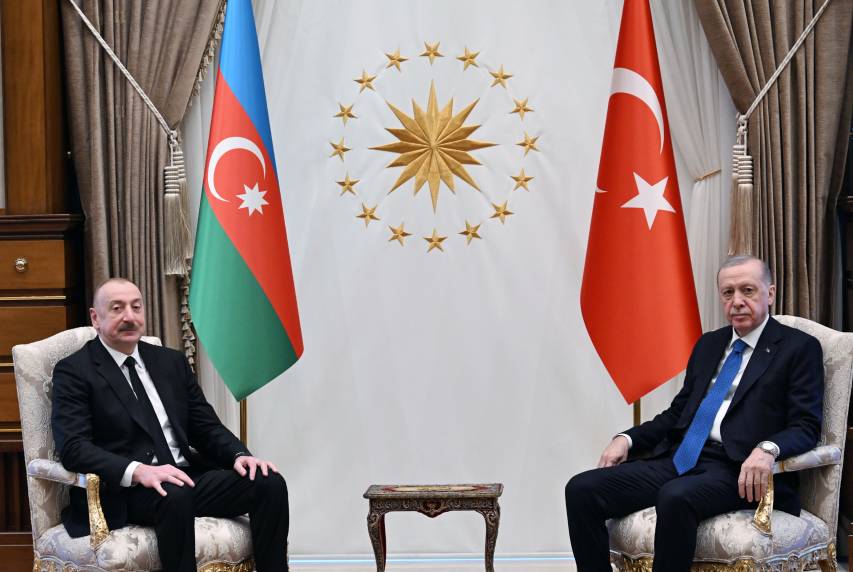18:00
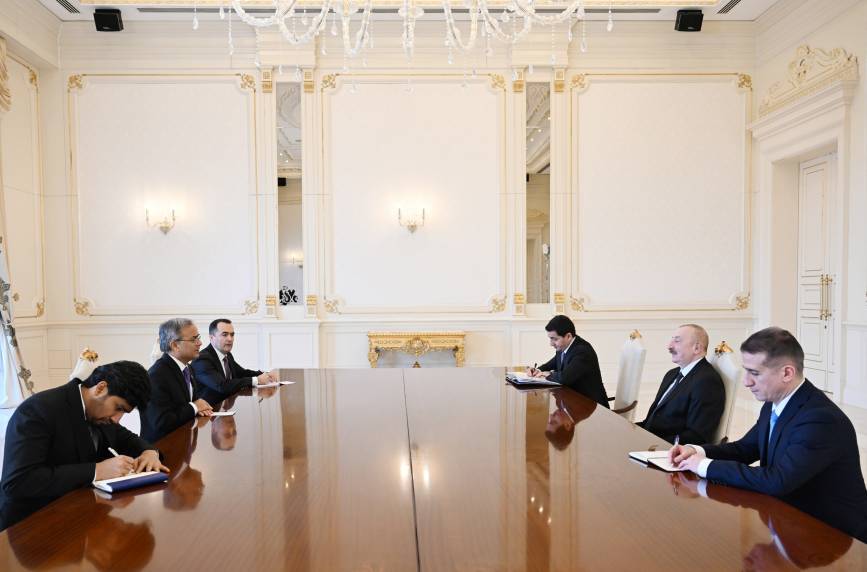
Worldfolio
September 2013
As Muslim countries look to Azerbaijan as an inspiring example of development, the OIC’s 2nd Islamic Conference of Labor Ministers in Baku this April has put forward a landmark framework towards confronting the world’s unemployment problem
Ever since the onset of the global financial crisis, not one country has been immune to the effects of a recession that has caused, and still continues to see, escalating rates of high unemployment. The shocking statistic that the number of the world’s unemployed has skyrocketed from 150 million people in 2007 to over 202 million in 2013 certainly goes a long way towards demonstrating this worrying fact.
Even as the world’s economy continues with its positive recovery, unemployment rates persist in growth, with another 3 million people expected to drop out of the labor market next year. And yet while unemployment is undoubtedly an international problem, as is with the majority of socio-economic indicators it is largely the countries of the Muslim world that suffer most.
Since 2006, the average unemployment rates in OIC member states have remained significantly higher than in the rest of the world. In this period the OIC average has stood at more than 9% of the population jobless, comparing that to the global average of 6.8% and the 6.4% of non-OIC developing countries. When you narrow these statistics to unemployment amongst youths, it tells a story of an even harsher reality. Just prior to the Arab spring, the rate of those under the age of 24 without a job in the Middle East and North Africa stood at 23.4%, then the highest in the world. (Today, troubled Spain now sees an astronomical 56% of it 15-24 year olds out of work.)
Indeed, as recent research has suggested, it was such a high incidence of unemployment in the Arab world that was regarded to have been a major catalyst in the widespread uprising of 2011. And while many of those who rebelled for positive change, and not so without cause, the already existing and long-standing socio-economic barriers in these countries have unfortunately continued to contribute to further growth in youth unemployment.
Meanwhile, a study conducted by the International Finance Corporation and the Islamic Development Bank last year reported that the “lost youth” problem is costing Arabic countries more than $40 billion annually. For the Arab world – and their Muslim brothers and sisters who suffer a similarly tragic fate globally – something evidently has to change.
With this in mind, the Organisation of Islamic Cooperation called its 2nd Islamic Conference of Labor Ministers (ICLM) in Baku – the capital of Azerbaijan – this April towards addressing the problem.
Importantly, the meeting culminated in member states adopting a strategic plan entitled the “OIC Framework for Cooperation on Labor, Employment and Social Protection”. The agreement marked a historic step towards further consolidating intra-OIC cooperation towards tackling growing unemployment and advancing socio-economic development.
Identifying the priority areas of cooperation, the Baku meeting was aimed to create a solid platform for cooperation among the OIC countries through the exchange of progressive ideas and innovations, developing the labor market, increasing labor potential, ensuring working conditions at the level of international standards and overall reducing the unemployment rate towards improving the population’s welfare.
While a steering committee was elected to coordinate the activities of the various national focal points and relevant OIC institutions in compliance with the conference, another important development came as the proposal of IIham Aliyev – the President of Azerbaijan – for the establishment of a permanent OIC Labour Center in Baku was heavily endorsed. Claiming the center would “strengthen unity” among Islamic countries, the President also drew attention to Azerbaijan’s great efforts towards eradicating poverty and unemployment. Indeed Azerbaijan has been a great example for socio-economic development in the Muslim world in recent years, with the United Nations and World Bank both agreeing that the country has made significant progress in achieving its Millennium Development Goals.
According to a recent report by the International Labour Organization, the youth unemployment rate in Azerbaijan has been drastically reduced from 18.4% in 2010 down to 11% this year. With the Government having worked hard to create hundreds of thousands of jobs in the country over the last few years, the overall unemployment rate has dropped down to as low as 5.4% in 2012, with unemployment benefits also continuing to fall.
With this in consideration, it is really no wonder that Azerbaijan has been chosen to chair the Committee for Labor and Social Protection for the next two years, with the OIC hoping that the country will lead the way in helping its fellow Islamic countries to create their own better opportunities.
Addressing the meeting, Azerbaijani Minister of Labor and Social Protection of Population Fizuli Alakbarov added that while their development is something to behold, the consequences of the global financial and economic crisis have also affected Azerbaijan and therefore, cooperation within the international organizations, including the OIC, is essential.
“These meetings are very important from the point of studying the experience of other countries in this area and examining the measures of improving the effectiveness of using labor resources, productivity and reducing tension on the labor market,” he said. Going forward, following the great example set by Azerbaijan, and the mechanisms of cooperation put forward by the momentous Baku framework, the whole of the Muslim world will now hope to start providing more jobs – with better conditions – for more people than ever before.
Link to article

